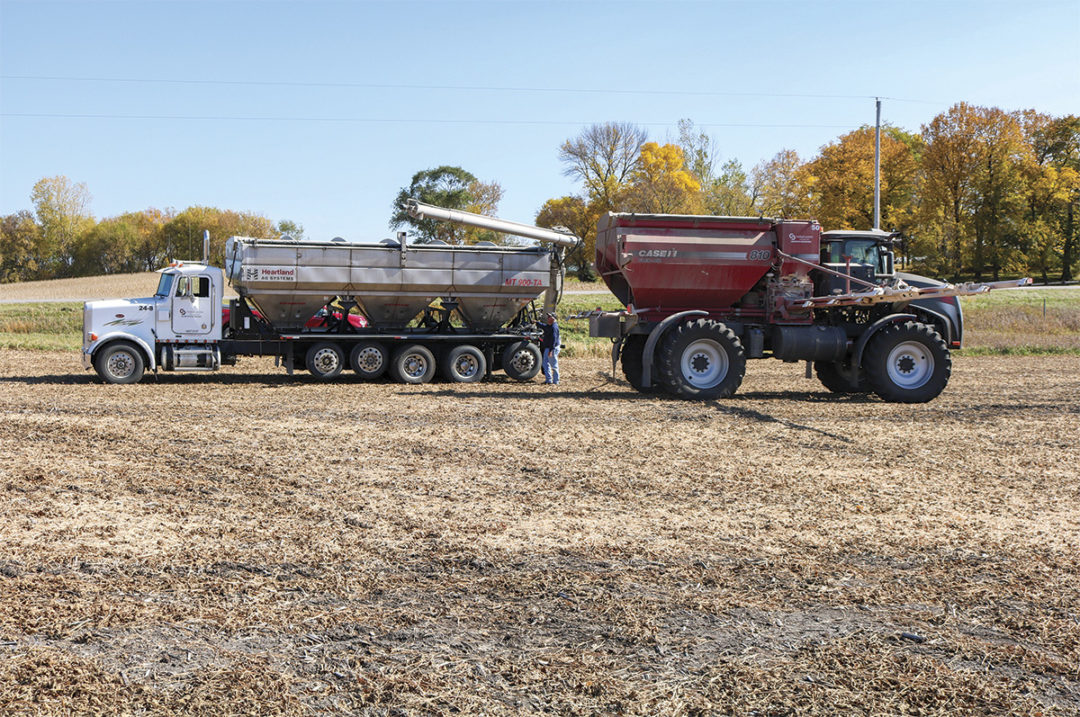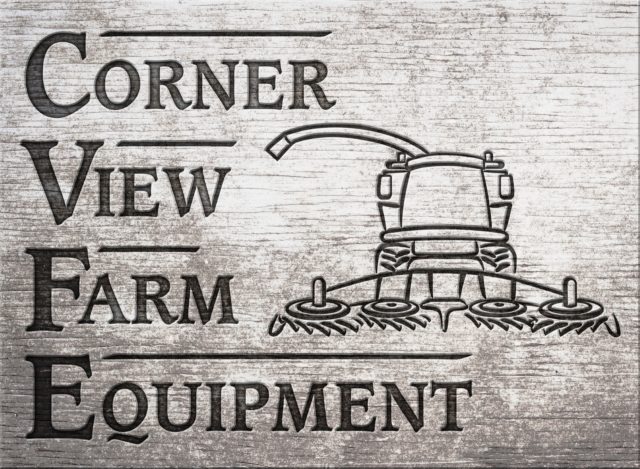As more and more growers invest in their own dry fertilizer applicators – and as the cost of in-season downtime climbs upward of $2,000 per day – end-of-season equipment inspections have become increasingly important to help protect the machine investment and ensure timely fertilizer applications the next spring.
“We can’t stress enough how doing a complete and thorough inspection when you’re done with the machine this season, and performing any necessary repairs before storing for winter, will make it that much easier to get started when your fields are ready next season,” says Nathan Druffel, Burley, Idaho and the Northwest regional operations manager for Heartland Ag Systems.
“As we all know, the timing of fertilizer application is very key in agriculture, and if you can’t use the machine when you need it, that can negatively affect your crop performance and yields,” Druffel adds.
“Keep it simple. Make a checklist so you don’t forget anything and continue using that checklist year after year,” Druffel advises. “Or consider partnering with a trained and experienced Heartland Ag technician to perform the inspection or provide help.
“Our technicians specialize in application equipment; they see numerous spreaders and sprayers each year, and they know what to look for since they’re trained to do preventative maintenance inspections. They can help make sure nothing is overlooked so you can avoid costly in-season downtime," he explains.
Regardless of how you prefer to handle the inspection, Druffel recommends following these key steps for winterizing your spreader.
Perform a comprehensive cleanup: Completely clean the machine’s exterior and interior, including the box, frame, booms, axles, suspension, steering components, spinners, hydraulic system – everything. Meticulously inspect for cracks, leaks, hidden damage from use or anything that might need to be repaired before next season.
- For self-propelled machines, inspect and clean the chassis, engine, transmission, rear end and hubs. Discard all trash from inside the cab, vacuum the interior, inspect air conditioning filters and consider placing rodent bait or repellant to keep critters out.
- For air boom systems, clean the booms and belts to be sure they are free of any corrosive materials. It’s also important to inspect the fan and fan housing to look for damaged blades, as holes in the fan housing can adversely affect the airflow to the booms and, in turn, the spread quality.
Remove all fertilizer debris: Fertilizer is very corrosive and can cause a lot of rust issues, especially when met with rain or moisture. When washing the outside of the machine – the box, booms and spinners – be sure to remove all corrosive fertilizer dust and granules to prevent rust and corrosion. It is also important to clear all corrosive materials from the electrical wiring and ISOBUS connections to prevent rusting that can block electrical signals.
Clean the conveyor belts, oil the chains and check for missing pieces: To further protect against corrosion and rust, keep the chains and joints free and in good shape by removing fertilizer from all metal surfaces and greasing the chains. Help prevent metal from binding to metal by greasing the pivot points and shafts.
Keep the machine covered: Moisture in the air rusts metal parts of unprotected equipment. If you can cover the machine during seasons impacted by rain and/or snow – whether it be in a shed, shop or even with a large tarp – it will be better protected and in a better condition the next time it’s used.
“Annual, end-of-season equipment inspection and maintenance routines help to mitigate the risk of days or even weeks lost in-season due to downtime from costly, time-consuming repairs,” says Druffel. “These practices also help to protect the machine’s resale value when you’re in the market to upgrade.”
Growers who don’t have the time or interest in performing equipment inspections can turn to companies like Heartland Ag Systems, which offers a preventive maintenance inspection (PMI) program with an annual inspection to help customers keep equipment in tip-top shape and their operations running as efficiently as possible.
“Our application specialists carefully evaluate the customer’s equipment to find problems before they’re in the field. This also helps extend the life and value of the equipment,” says Druffel. “After the customer receives results of the PMI, they can choose to do any necessary repairs themselves or have us perform those repairs. Either way, the value these PMIs deliver to the grower is the potential for extensive savings and increased productivity at the start of the next season,” Druffel concludes.










